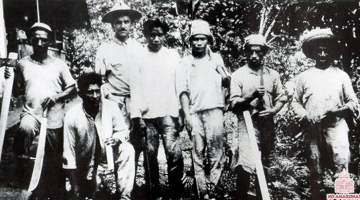According to a study involving biofuels, market opening this green fuel would allow a significant reduction in economic costs in the production and maximize the environmental benefits of renewable fuels. This conclusion is part of the study “Biofuels: U.S. and EU mandates and impacts on world markets” prepared by the Interamerican Development Bank (IDB) in collaboration with the Federation of Industries of São Paulo (Fiesp) and released on Wednesday fair. The document was prepared by the International Food Policy Research Institute (IFPRI) and technical cooperation with the Institute for International Trade Negotiations (Icone).
Still, according to surveys, in a scenario where the United States and the European Union would eliminate its tariffs on imports of biofuels by 2020, the emission of greenhouse gases would be reduced significantly. However, biofuel production in Brazil would grow much at the expense of other countries, although production also expanded in the United States and the European Union. David Debucquet, a researcher at IFPRI, said that Brazil could have a reversal in the increasing use of ethanol as fuel because most of the production would be exported to meet the international market and ethanol would be little for the internal market. “There would be a return to growth in fossil fuel use in Brazil,” he said.
Debucquet provides that the free market would raise significantly the international price of sugar, since most of the cane sugar would be destined for ethanol production. Brazil does not have, however, problems in expanding its area planted with sugarcane. According to the study, the release of European and American markets would increase the area planted with sugar cane for four million hectares in 2020. About 78% of the expansion would be undertaken in areas of pasture and 11% of savannah, according to the researcher.
The study also examined two other scenarios, besides the free market. In one, the rates available today would still exist and the other, the market would be less free to ethanol over sugar cane in Brazil. According to the director of Icon, Andre Nassar, in all scenarios, the producer comes up with gains. “Be with the free market or not, the expectation is high commodity prices,” he said. Nassar also said that the most likely scenario for 2020 is the maintenance of tariffs.
Fiesp released the “Panorama of Energy in the Americas and the Caribbean,” which gathers information on the energy mix of countries, international trade and energy policies to encourage production and use of biofuels in the region. The study was prepared by the Fiesp in partnership with the Interamerican Institute for Cooperation on Agriculture (IICA). The research shows that bilateral trade involving energy in the Americas is $ 354.5 billion, 18% of the world. The study also shows that the Americas and the Caribbean, 33% of the energy is derived from oil, 25% gas, 22% coal, 8% nuclear, biomass 7% and 4% from hydro.
EYE:
Biofuel production in Brazil would grow much at the expense of other countries, although production also expanded in the United States and the European Union.











